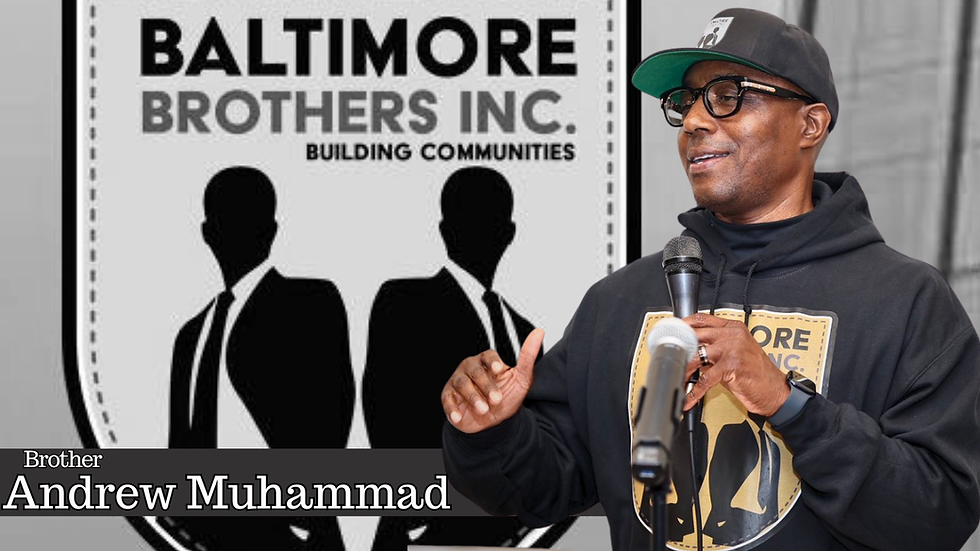Target Boycott and the DEI Pullback: A Call for Strategic Action
- Brother Levon X

- Jan 28
- 3 min read

In recent weeks, conversations around the rollback of Diversity, Equity, and Inclusion (DEI) initiatives in major corporations, like Target, have sparked heated debates. Target has long been known for its inclusion of Black and Brown communities, both in employment—where 11.2% of its workforce consists of people of color—and in its commitment to showcasing diverse products. However, with recent policy changes, such as those initiated under the executive order by President Trump restricting certain DEI programs, many are left questioning the future of such commitments.
The Concern: What Does This Pullback Mean?
Does scaling back DEI mean fewer Black-owned products on shelves? Does it mean people of color will lose their jobs? These questions have created uncertainty, fueling discussions about boycotting corporations that appear to be retreating from diversity-focused policies. But before we act emotionally, it’s critical to ask: Are we prepared for the potential economic fallout?
Boycotts have historically been a powerful tool for change. The Montgomery Bus Boycott is a shining example where a united community created an alternative transportation system, ensuring livelihoods weren’t disrupted while challenging systemic injustice. Carpooling and community-run transportation ensured the movement could sustain itself economically.
However, today’s economic landscape is far more interconnected. If a store like Target which employs thousands of low-income workers, many of whom are people of color—loses revenue due to boycotts, how will those workers recover? What is our plan to support them? If these stores remove Black-owned products due to declining sales, where will those businesses go?
The Bigger Question: Boycott or Build?
The broader issue here isn’t just about Target or DEI policies; it’s about the Black community’s economic independence. The Honorable Minister Louis Farrakhan has often said, “Business is warfare.” Without a strong economic foundation, we leave ourselves vulnerable to external forces that can disrupt our livelihoods.
Instead of solely focusing on boycotts, we should direct energy toward creating businesses and systems that provide employment and economic stability within our communities. Imagine a world where, regardless of external policies, the Black community could rely on its own businesses for jobs, resources, and products. That’s the vision we must strive for.
Learning from Other Models
When social media platforms like TikTok faced potential bans in the U.S., another platform, RedNote, prepared itself to absorb displaced users. This example of readiness underscores the importance of having contingency plans. For the Black community, this means building infrastructure that supports our own, ensuring no one is left behind when the unexpected happens.
The Path Forward
If faith-based organizations, grassroots movements, and community leaders aren’t discussing how to create sustainable businesses and economic independence, then we are failing future generations. Gentrification, unemployment, and economic dependency are direct results of neglecting this critical pillar of self-reliance.
Before we act—whether it’s a boycott or another form of protest—we must ask:
What is the backup plan for those affected by our decisions?
How can we ensure displaced workers are supported?
Are we intentionally supporting Black-owned businesses with quality products?
“We must rise above emotions and think strategically.” Our moves must not only challenge systems but also create new ones that empower our people.
The rollback of DEI programs at companies like Target is a wake-up call. It forces us to examine not just what we’re up against, but what we’re building. It’s time to focus on creating a robust economic pillar within our community—one that can withstand policy changes, corporate decisions, and economic shifts. Let’s channel our energy into building businesses, supporting one another, and ensuring that no matter what, we have a plan for economic survival and growth.
References:
The Honorable Minister Louis Farrakhan on Economics: “Business is warfare.”
History.com Editors. “Montgomery Bus Boycott.” History.com, 2021.
Target’s Diversity and Inclusion Report, 2023.
Executive Order on Combating Race and Sex Stereotyping, 2020.
Let’s continue this conversation and work together toward sustainable solutions. Share your thoughts—what’s your vision for building economic resilience in our communities?





Comments